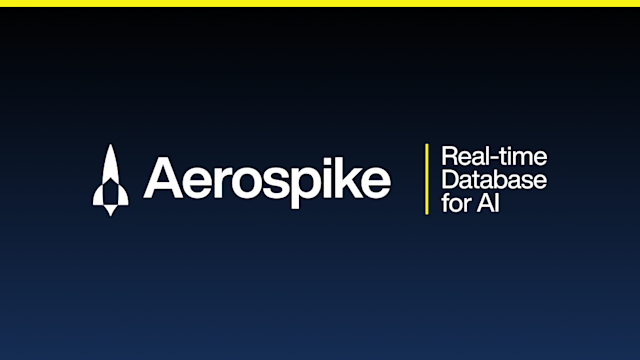Managed cloud storage for performance at scale
Learn how managed cloud storage delivers low latency, global scale, strong security, and lower costs with automation and flexible deployment for data workloads.
Cloud adoption has become mainstream in today’s IT strategies, and with it, the demand for managed cloud services continues to rise. In fact, according to Gartner, 65% of application workloads will be optimal or ready for cloud delivery by 2027 (up from 45% in 2022). As businesses migrate more infrastructure to the cloud, managed cloud storage has emerged as a solution for storing and managing data without the issues of maintaining physical infrastructure.
What is managed cloud storage?
Managed cloud storage is a cloud-based service where a third-party cloud provider oversees all aspects of an organization’s data storage environment. In this model, the cloud provider handles the underlying storage hardware, software, maintenance, and administrative tasks on behalf of the customer, unlike traditional on-premises storage, where the business itself is responsible for deploying and managing storage systems. This means your data resides on the provider’s servers and is accessed through the internet, while the cloud provider takes care of capacity provisioning, updates, and troubleshooting.
Using managed cloud storage frees businesses from having to invest in and maintain their own storage infrastructure. The provider takes on duties such as scaling the storage capacity, performing regular backups, configuring redundancy, and applying updates or patches. Organizations no longer need to purchase expensive disk arrays or employ dedicated staff for storage management; the cloud provider handles backups, disaster recovery, and 24/7 monitoring so the system is available and secure.
In short, managed cloud storage lets companies focus on their core business and applications, while experts run the storage behind the scenes.
Public vs. private vs. hybrid (and multi‑cloud)
Before choosing a managed storage service, it helps to understand the main cloud deployment models and where each shines. (Note: a VPC [Virtual Private Cloud] is a logically isolated network inside a public cloud; it is not the same as a private cloud.)
Public cloud
Shared, provider‑operated infrastructure used by many customers (multi‑tenant), isolated logically per account
Pros: Quick scale, rich services, global reach, usage‑based pricing
Typical fit: New apps, analytics, backups/archival, bursty workloads
Private cloud
Single‑tenant or dedicated environments, either on your premises or hosted by a provider; often built on platforms such as VMware or OpenStack, or delivered as dedicated regions/hosts from hyperscalers
Pros: Tighter control, predictable performance, data locality/residency options
Typical fit: Regulated data, strict latency/SLA needs, custom security controls
Hybrid cloud
Hybrid cloud is a mix of private (on‑premises or hosted) and public cloud, connected with consistent networking, identity, and policy
Pros: Place data close to where it’s processed, keep steady‑state workloads on‑premises while bursting to public cloud, simplify backup/disaster recovery to cloud
Typical fit: Modernization at your pace, large amounts of data near factories or branches, compliance‑driven placement
Multi‑cloud
Using more than one public cloud.
Pros: Best‑of‑breed services per provider, resilience/negotiating flexibility, regulatory or geographic coverage
Trade‑offs: Added complexity, egress/networking costs, tooling, and skill fragmentation
Quick clarity: A VPC is a logically isolated network inside a public cloud; it is not the same as a private cloud
Benefits of managed cloud storage
Managed cloud storage offers numerous advantages over self-managed or on-premises storage solutions. By offloading storage management to specialized providers, businesses are more agile, reliable, and cost-effective. Below are some of the benefits of adopting managed cloud storage.
Scalability and flexible capacity
One of the biggest benefits is the ability to more easily scale storage resources on demand. Managed cloud storage helps businesses expand or reduce their storage capacity quickly as requirements change, without upfront hardware investments. Instead of buying and installing new disks or servers every time you approach capacity, adjust your subscription or usage level. This elasticity means you start with a small storage allocation and grow to petabytes of data if needed. Capacity can be increased or decreased in a few clicks or via an API, eliminating the over-provisioning and lengthy procurement processes of traditional storage. This on-demand scalability keeps your storage environment agile and means you pay only for the capacity you actually need at any given time.
Cost efficiency and reduced IT overhead
Managed cloud storage often saves money. With a cloud service, there are no capital expenditures for buying storage hardware or ancillary equipment such as power and cooling; you pay only for the storage you use as an operational expense. The provider is responsible for the infrastructure investments and economies of scale, which means they offer storage at a lower incremental cost than most companies could get on their own. You also avoid ongoing maintenance and upgrade costs associated with on-premises storage systems, such as replacing failed drives or purchasing newer hardware generations.
Additionally, because the provider manages the storage, you may not need to hire additional specialized IT staff to administer the storage environment. All of this translates to a more predictable and optimized storage cost structure. Many cloud storage services offer flexible pricing models such as pay-as-you-go or tiered storage classes, so you match spending with actual usage, avoiding overpaying for unused capacity.
Improved data security
Security is an important consideration for data storage, and managed cloud providers typically invest in protecting customer data. Enterprise-grade managed cloud storage platforms offer cloud security measures such as encryption of data at rest and in transit, fine-grained access controls, and authentication mechanisms. Your data is often stored in secure, hardened data centers with multiple layers of physical and network security.
Reputable providers also undergo regular security audits and compliance certifications such as ISO 27001, SOC 2, GDPR, or industry-specific standards to validate that they adhere to security standards. These measures help keep your information safe from unauthorized access and breaches. In many cases, cloud providers offer a level of security monitoring and threat response that would be too expensive for a company to implement on its own. Overall, managed cloud storage improves your data security posture by using the provider’s dedicated security expertise and infrastructure.
High performance and low latency
Managed storage services are generally optimized for performance using advanced technologies and architectures. Providers often design their storage platforms with high-speed networks and efficient data access paths to deliver fast read/write throughput and low latency. For example, many cloud storage systems use techniques such as data caching, solid-state drives (SSD/NVMe storage), and geographically distributed edge nodes to get data faster.
Providers also continuously monitor performance metrics and allocate more resources or load-balance traffic to prevent bottlenecks. The result is that applications and users get data quickly, often as fast as or faster than well-tuned on-premises storage. Managed databases and caches in the cloud similarly use in-memory storage and optimized query engines for millisecond-level response times for real-time applications.
In short, a good managed cloud storage service is engineered to handle demanding workloads with consistent high performance, so organizations don’t have to worry about storage throughput or tuning because it’s built into the service.
Reliability and data redundancy
Storing data in the cloud is more important and protects against disasters better. Managed cloud storage providers typically maintain redundant copies of data across multiple servers or locations to protect against hardware failures. If one disk or even an entire server rack fails, your data remains intact on other replicas. Many services keep at least two or three copies of each piece of data so that the loss of any machine won’t result in data loss.
In addition, providers regularly back up data and have disaster recovery processes in place for restoring it if needed. This built-in redundancy and cloud backup free you from having to set up your own secondary storage sites or tape backups.
Managed cloud storage also comes with uptime guarantees. Leading providers offer service level agreements (SLAs) that commit to high availability, often 99.9% or higher, meaning your data will be available virtually all of the time. Their teams monitor the systems around the clock and quickly address issues, and fail over to backup systems if something goes wrong to reduce downtime.
In essence, the combination of redundant infrastructure and proactive management reduces the risk of data loss or downtime compared to an on-premises storage array. Your business benefits from reliable data access and data durability that would be costly to achieve alone.
Simplified management with expert support
A major appeal of managed services is reducing work for your team. With managed cloud storage, day-to-day maintenance and management tasks are handled by the provider’s specialists. This includes tasks such as applying software updates and patches, replacing failing hardware, monitoring performance, and capacity planning. By outsourcing these responsibilities to external cloud experts, organizations redirect their internal IT teams toward more strategic projects and core business objectives rather than routine storage upkeep. Because the provider’s administrators take care of the “heavy lifting,” your team spends less time on storage-related troubleshooting or provisioning.
Moreover, managed storage often comes with the benefit of expert support and guidance. Providers maintain teams of certified engineers and support staff who manage the storage cloud platform and assist customers. Many services include 24/7 monitoring and technical support, so if any issue arises at any time, qualified personnel are available to respond and resolve it quickly. This around-the-clock expert oversight helps catch and fix problems preemptively, often before you even realize there was an issue. The provider’s experts also help improve your environment.
For example, they might suggest better configurations or storage classes to improve efficiency. In summary, managed cloud storage delivers a worry-free experience: your data is always taken care of by professionals, letting your in-house IT focus on innovation rather than infrastructure.
Global accessibility and collaboration
Because managed storage resides in the cloud, it is inherently accessible from anywhere with an internet connection. This global accessibility means your teams, applications, or customers have access to data from any location, at any time, with proper permissions. It makes remote work and collaboration across distributed offices or partner organizations easier. Employees securely retrieve and share files through cloud interfaces or APIs, whether they’re in the office, at home, or on the road. This anytime/anywhere availability of data is more productive and provides more working options.
In addition, many managed storage services let you take advantage of multiple geographic regions or data centers. You might store copies of data in different regions to serve users faster or for compliance reasons. Some providers even offer built-in content delivery networks or edge caching so that commonly accessed data is served from a location nearest to the user, improving access speed globally.
From a collaboration standpoint, cloud storage often integrates with other cloud tools such as project management or analytics services, making it easier to build workflows around centrally stored data. Overall, managed cloud storage breaks down geographic barriers to data, providing a unified, collaborative data environment for your organization.
Potential challenges of managed cloud storage
While managed cloud storage brings many benefits, it’s important to be aware of potential challenges and tradeoffs. Organizations should consider these factors when planning a cloud storage strategy, as they affect costs, control, and risk. Here are some common challenges associated with managed cloud storage and how to think about them.
Limited control and visibility
When you use a managed cloud service, you inherently give up a degree of control over the infrastructure. The cloud provider owns and operates the storage systems, so customers have less direct control over configurations, hardware choices, or troubleshooting processes than they would with on-premises gear.
For example, you cannot fine-tune the low-level storage settings or choose the exact make/model of drives being used, because those decisions are abstracted away. This lack of control and visibility may concern companies with specific performance tuning needs or regulatory requirements for how data is handled.
However, in most cases, the provider’s defaults and available configuration options are sufficient, and the tradeoff is that you get a professionally managed system without needing to control every knob. Still, it’s important to ensure the service offers enough transparency through performance metrics dashboards and audit logs for your comfort.
Risk of vendor lock-in
Relying on one cloud storage provider introduces vendor lock-in risks. Migrating large volumes of data out of one cloud and into another or back on-premises is technically complex and time-consuming. Proprietary data formats or features make switching providers harder.
Consequently, once a business has migrated its databases, files, or backups to a specific cloud storage service, it may feel “stuck” with that provider to avoid the disruption of moving. Additionally, cloud providers sometimes charge high fees for data egress, or downloading data out of the cloud, which further discourages moving data to a competitor.
To mitigate lock-in concerns, organizations should plan by favoring standards-based solutions, maintaining data backups outside the provider, or designing a multi-cloud strategy so workloads aren’t tied to one vendor. In fact, some managed services support multi-cloud deployments or easy migration paths, giving customers more flexibility to switch environments if needed.
Dependence on internet connectivity
Using cloud storage requires a reliable network connection. If your internet connection or direct cloud link goes down, your applications and users may temporarily lose access to the data stored in the cloud. In contrast, locally stored data is available even during internet disruptions, so long as the local network is up. For most businesses with redundant internet links or high availability networks, this isn’t a frequent problem, but it’s a factor to consider. Bandwidth and latency of the internet connection also affect performance when moving large data sets to and from the cloud.
To address this, organizations invest in high-speed dedicated connections to cloud providers such as AWS Direct Connect or Azure ExpressRoute for more dependable throughput. Additionally, caching frequently used data locally or using hybrid storage architectures reduces reliance on constant internet connectivity. Overall, a stable network is a prerequisite for cloud storage; planning for redundancy and sufficient bandwidth helps avoid connectivity issues.
Security and compliance concerns
Although cloud providers offer security, some companies remain hesitant about placing sensitive data outside their own premises. There can be concerns about data privacy, regulatory compliance, or simply trust in the provider’s security. It’s true that not all cloud services are equal; some may lack certain certifications or advanced protections, so due diligence is necessary.
Organizations in highly regulated industries such as finance, healthcare, and government need to ensure a managed storage provider meets requirements for data encryption, residency, auditing, and breach notification. There may also be legal or contractual rules that limit where data can be stored, such as the requirement that it remain in a certain country, which not every provider accommodates.
Fortunately, many major cloud providers have robust compliance offerings and will sign agreements to help meet regulatory needs. Companies should closely evaluate a provider’s security features and track record. Asking questions about how data is isolated in a multi-tenant environment, what happens if a government requests access to data, and how the provider handles incident response sheds light on whether the service meets your security expectations.
Ultimately, while security is often a benefit of managed services, it must fit with your organization’s specific compliance obligations and tolerance for risk.
Choosing a managed cloud storage provider
If you’ve decided to use managed cloud storage, the next step is selecting the right provider and service for your needs. Not all services are the same; they vary in performance, features, cost, and support. Here are some factors to consider when evaluating managed cloud storage providers or a cloud solution:
Service reliability and SLAs
Check what SLAs the provider offers for availability and performance. An SLA is the provider’s promise, often legally backed, for service uptime and response times. For important data, look for uptime guarantees of 99.9% or higher, which translates to less than nine hours of downtime annually. The SLA should also outline how issues are handled, such as expected response times for support tickets or incident resolution. Some providers include credits or penalties if they fail to meet the SLA, which is a sign of accountability. Be sure you understand the SLA’s terms and any exclusions. A strong SLA with high uptime commitments and clear remedies is a good indicator that the provider has confidence in their infrastructure reliability. It also gives you peace of mind that your storage will be consistently available and that the provider will work quickly to address service disruptions.
Security and compliance capabilities
Evaluate the security features and compliance certifications of the service. At a minimum, any cloud storage provider should offer encryption for data at rest and in transit, meaning your data is encrypted on disk in the cloud and protected via SSL/TLS when moving over the network.
The provider should support access controls, such as role-based access control to limit who can see or modify data, multi-factor authentication for management access, and detailed audit logging. If your data is subject to specific regulations such as HIPAA for healthcare data, PCI DSS for payment data, or GDPR for EU personal data, check that the provider is willing to sign agreements or provide attestations to compliance.
Many providers list their compliance certifications on their website; these might include ISO 27001, SOC 1/2/3, FedRAMP for the US government, and industry-specific ones. Choosing a service that aligns with your compliance needs avoids problems down the road. Don’t hesitate to ask providers about their data encryption standards, data deletion policies, and how they handle security incidents; a reputable managed storage provider will have well-defined answers and practices for all of these aspects.
Scalability and flexibility
Managed storage services offer different levels of scalability and flexibility, so consider how well a provider accommodates your evolving needs. Ideally, the service should allow you to scale storage capacity up or down easily without lengthy provisioning delays or migrations. This might mean the provider’s interface or API lets you allocate more space or adjust performance tiers on the fly. Also, review any limits such as maximum storage per account or performance caps so they won’t constrain your growth.
Flexibility also extends to factors such as data retention and cloud backup options. Does the provider let you define custom backup schedules or replicate data to different regions? Can you choose different storage classes, such as standard versus infrequently accessed storage, to reduce costs? The more flexibility it offers, the better you can fine-tune the service to your requirements.
Pricing models are another aspect of flexibility: look for transparent, usage-based pricing that lets you pay as you go. This means you’re only paying for what you actually use, and it’s easier to adjust costs if your usage changes. Some providers offer reserved capacity discounts or other options; make sure the pricing aligns with your budget preferences. In summary, choose a service that grows with you and offers configuration choices that match your workload and cost optimization strategies.
Support and expertise
Quality of support is a differentiator among managed service providers. Because you are entrusting your data to a third party, you’ll want a provider known for responsive and knowledgeable support. Investigate what support channels are available, such as email, chat, and telephone, and the support hours; 24/7 support is important for many businesses, as issues arise at any time. Top-tier providers offer around-the-clock monitoring and technical support from skilled engineers well-versed in the platform. Check if support is included in the base service or if it requires an added contract. Also, look for customer reviews or case studies that mention the provider’s support reliability.
Another aspect is the expertise the provider brings: Do they have a track record in cloud storage and a team of certified architects/engineers maintaining the system? Providers that employ experienced staff and follow best practices manage the infrastructure more effectively, resulting in better performance and fewer incidents for you. Some providers may also offer advisory services to help you optimize usage or plan migrations, which can be valuable.
Ultimately, you want to feel confident that the provider is a true partner, proactively keeping your storage environment healthy and being there to help when you have questions or problems. This support and expertise element provides more value from managed cloud storage.
Aerospike and managed cloud storage
Managed cloud storage has become an essential component of today’s cloud strategies, delivering the scalability, reliability, and efficiency that organizations need to handle their growing data demands. By using a managed service, companies innovate faster without getting bogged down in the complexity of storage maintenance, with their data stored securely and made available whenever and wherever it’s needed. A well-chosen managed storage solution provides cache-like performance, enterprise-grade durability, and cost savings all at once. These advantages make a compelling case for businesses to consider trusted cloud providers for their storage and data management needs.
Aerospike Cloud delivers ultra-fast, sub-millisecond data access even at massive scale from terabytes to petabytes of data with predictable low latency and high throughput. It has proven capable of sustaining years of continuous uptime in production at global enterprises, thanks to its robust architecture and automation of failover and rebalancing. Aerospike’s patented Hybrid Memory Architecture also saves money, often reducing infrastructure footprint and costs by up to 80% compared with other database or storage solutions. In short, Aerospike Cloud offers the performance, scalability, and reliability that today’s data-intensive applications demand, in a convenient managed service package.
For organizations looking to take advantage of the benefits of managed cloud storage for real-time data and beyond, Aerospike provides a proven path. Aerospike’s cloud service is “engineered for speed, managed for you,” allowing you to focus on building innovative applications while its team handles the operational heavy lifting.
If you’re ready to accelerate your data-driven initiatives with a powerful, fully managed cloud data platform, consider exploring Aerospike Cloud to see how it helps your business. It’s an opportunity to gain the performance and scale of Aerospike’s technology, with the ease and peace of mind of an expertly-managed service: a combination that can help take your cloud strategy to the next level.




